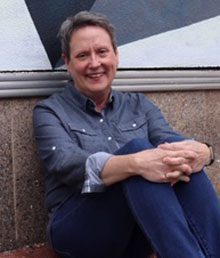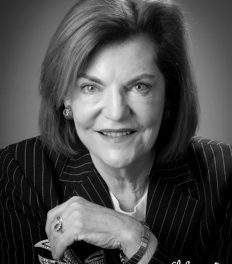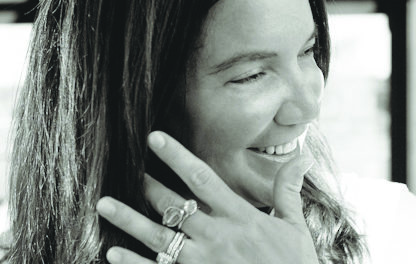I struggle with writing. I suspect it comes down to some sort of insecurity. Am I any good? Who will read it? Will they like it? When I write poetry I wonder what in the hell I am doing. What makes me think I can write a poem, know anything about poetry, assemble a stanza? I allow most days to drift by without putting a single word on paper, turning my back on turning a phrase.
The act of writing is, of course, married to reading, and I often wonder why people read; how they find time to do it and I don’t. I remember reading Who’s Afraid of Virginia Woolf in the back of a Ford station wagon driving to the beach one summer. I devoured it. Maybe it was timing (I was sixteen or seventeen), the titillating writing, and the surprise of what can be made up and put on the page for someone, anyone, to consume. I’d never read anything like it and never will again. Later, to see Edward Albee’s play performed by the inarguable talents of Taylor and Burton, I was mesmerized again, witnessing words come to life.
There is a kind of violence and beauty in words. Recently, I’ve learned new word combinations like spy-hopping from my lifelong friend who swims with whales, and fairy holes from a guide who recently led an annual hike on private property bedecked in waterfalls and entrusted to Conserving Carolina. There are all kinds of fairy holes. This one was a loop of tree root where a waterfall passed through it. Spy-hopping is the act of whales and dolphins holding their heads out of the water in order to visually inspect the landscape above their watery habitat. Both seem magical to me — waterfalls passing through tree roots, whales peaking at my buddy floating in kelp beds off of the California coast.
Last night, I joined in on a Zoom seminar like I was sitting down to an episode of Schitt’s Creek; all comfy in bed with Trooper snoozing beside me, my bare feet tucked underneath a fleece Steelers blanket. The Western North Carolina Historical Society sponsored the virtual event. It was a journey into 90 year-old author Mary Othella Burnette’s book about southern Appalachian Black communities of the 1940s. Of all the impactful recollections Mary shared (she was high school roommates with Nina Simone), I was struck by her experience as a little girl wanting to put her hands into Lake Tomahawk. Because of Jim Crow laws, she could not. Decades later, she would return to touch the forbidden water, her personal closure to heal from hurt inflicted by the age old sin of man’s inhumanity to man.
When Mary retired after almost forty years of teaching English in Los Angeles, she woke up to the reality that if she didn’t tell her story and the story of her people — midwives and freedmen, farmers and friends — no one else would or could do it. Her details poured through the Zoom air waves like water through a fairy hole, unbelievable in parts, but real, intriguing, and noteworthy. I spy-hopped with her, looking back at an American landscape I could understand just a bit better because she took the time to write her story.
I keep wondering what there is to say, how to make a difference, and who cares. I read true stories of struggles overcome by resilience and faith. I receive links to blog entries by a friend brave enough to swim with whales and usher her mother through the last days and years of her life. I think about my own abandoned blog and when I’ll revive my enthusiasm to share, writing into the ether, waiting for the echo of my voice to filter back to me when someone “hearts” my post.
I think about writing, I write about writing, and I fret about what I write. I’m wasting time. Just write. Tell the story. If I never enter the fairy hole of giving voice to my soul, I lose the possibility of spilling into the magic of touching another person’s eyes and heart. Find your voice, the writing teachers preach. Make it a daily habit and carry a notebook and pen at all times. Without the act of writing, the gift of reading does not exist and I find hope in poetry, a short story, and make-believe picture books of little trains that can and bunnies saying goodnight to the moon.
I know I’m not doing enough; slinking away from volunteer opportunities, sitting down to Netflix when my desk isn’t cleared, unsubscribing from League of Women Voters emails and tossing donation requests from the American Cancer Society and Habitat. I moved to North Carolina knowing it was time to focus on my marriage, let go of stuff, and recharge my spirit. In the hollow of my chest, I feel the stir of unrealized potential, the promise that if I take time to put clothes on my thoughts, they appear as words. And if you are reading, if you decided to follow along to these last sentences, I am the luckiest and most blessed person in the world because maybe, somewhere in this mush of paragraphs, you found a morsel of satisfaction, inspiration, or challenge.
I write. You read. It’s magic.







